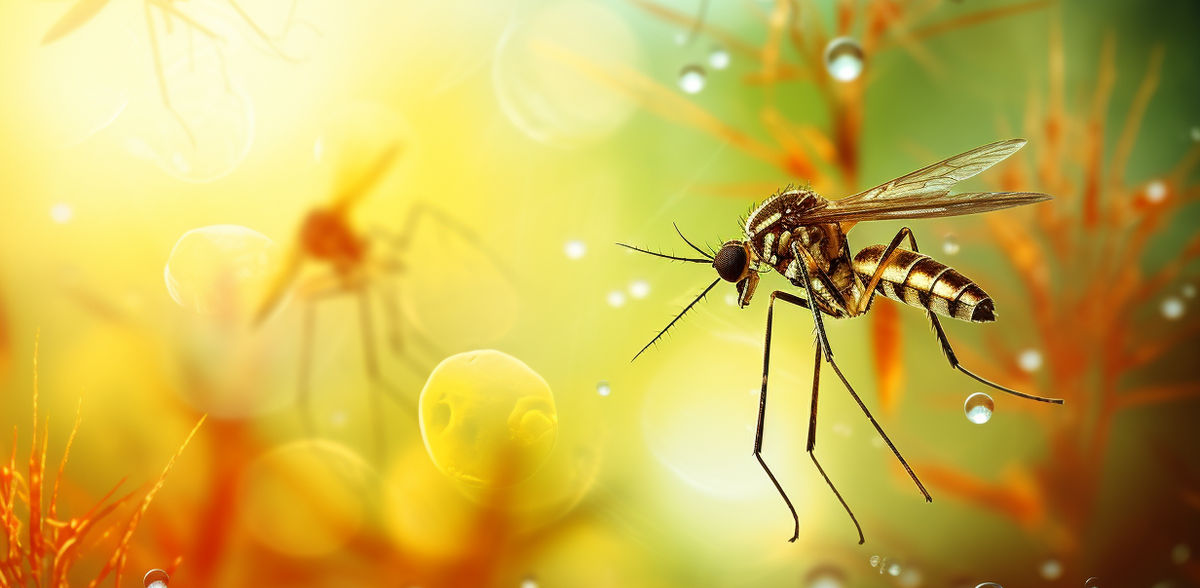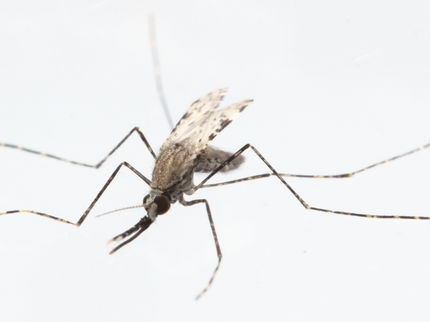How male mosquitoes compensate for having only one X chromosome
Research findings could spur new solutions to curb malaria
Advertisement
The research group of Dr Claudia Keller Valsecchi (Institute of Molecular Biology, Mainz, Germany) and their collaborators have discovered the master regulator responsible for balancing the expression of X chromosome genes between males and females in the malaria mosquito. This discovery helps scientists to better understand the evolution of the epigenetic mechanisms responsible for equalising gene expression between the sexes. The findings may contribute to the development of new ways to prevent the spread of malaria.
Most people would agree that mosquitoes are among the most annoying species on the planet. They keep us up all night with their whining, whirring wings, all while seeking a way to bite us and suck our blood. Yet mosquitoes are more than just a nuisance – they can also carry a whole host of serious, sometimes deadly diseases. One of the most dangerous diseases that mosquitoes can carry is malaria, a disease that affects millions of people and causes hundreds of thousands of deaths every year, primarily in African countries. Malaria is caused by Plasmodium parasites, which are spread through mosquito bites – specifically those of marsh mosquitoes (Anopheles). Importantly, only female mosquitoes bite, as they need the nutrients from blood to produce eggs. Scientists are therefore interested in understanding the mechanisms responsible for the molecular differences between male and female mosquitoes, as it could help us develop new ways to combat malaria.
Just like humans, the sex of a mosquito is determined by the sex chromosomes: females have two X chromosomes (XX), while males have an X and a Y chromosome (XY). This can be problematic, as males have only half the number of X chromosome genes as females, and hence would have only half the amount of proteins from the X chromosome. To compensate for this, there must be a way to increase the expression of X chromosome genes in males. However, no one knew what this mechanism could be in mosquitoes.
Agata Kalita from Claudia's group, who is the first author of the study and funded by a fellowship from the Boehringer Ingelheim Fonds (BIF)*, spearheaded the research. They collaborated with the groups of Dr M. Felicia Basilicata (Mainz University Medical Center), Dr Eric Marois (University of Strasbourg, France) and Prof. Franjo Weissing (University of Groningen, The Netherlands). Together, the researchers discovered that the protein SOA (sex chromosome activation) is the key regulator that balances X chromosome gene expression in male mosquitoes. They found that SOA works by binding to X chromosome genes and increasing their expression, but only in males. Female mosquitoes, on the other hand, only produce a small amount of very short, non-functional SOA.
Agata comments on the study: “Balancing gene expression on sex chromosomes is essential for development in some species. However, others do not have such a mechanism at all. Unexpectedly, we discovered that in mosquitoes, balancing X chromosome expression by SOA is not necessary for development, but it does give males a head start”. Claudia says, “This is an important clue as to how the mechanisms that balance gene expression on sex chromosomes may have evolved in the first place”. M. Felicia Basilicata, a joint senior author, adds: “Understanding the molecular principles acting on sex chromosomes will help us to understand differences between males and females in various human pathologies.”
The groups’ findings, which were published in the journal Nature, mark a major step forward in our understanding of how gene expression is balanced on the sex chromosomes. The researchers speculate that genetically manipulating genes that exclusively affect one sex could be a useful strategy for reducing the number of blood-sucking female mosquitoes, which would be a huge boon in the fight against malaria.

























































